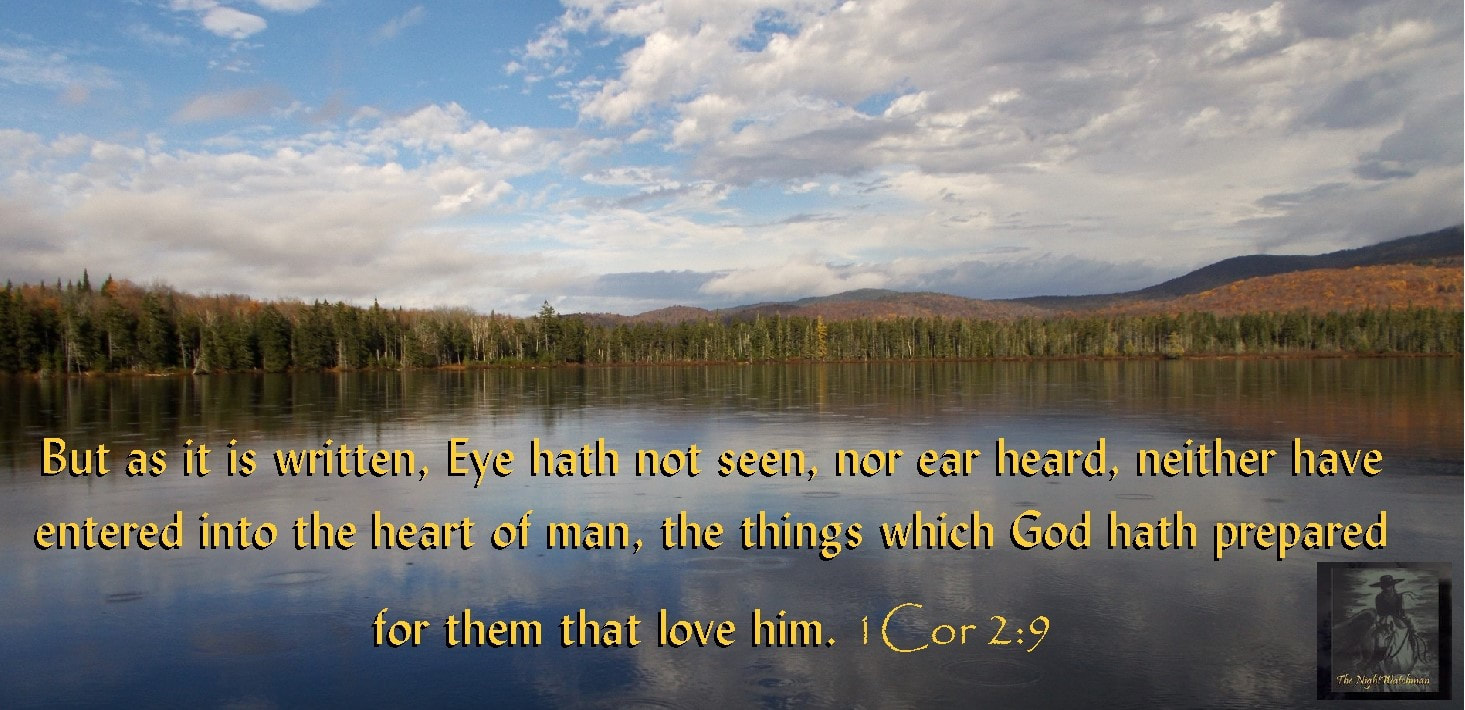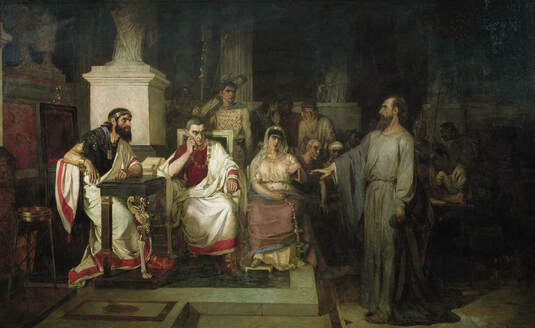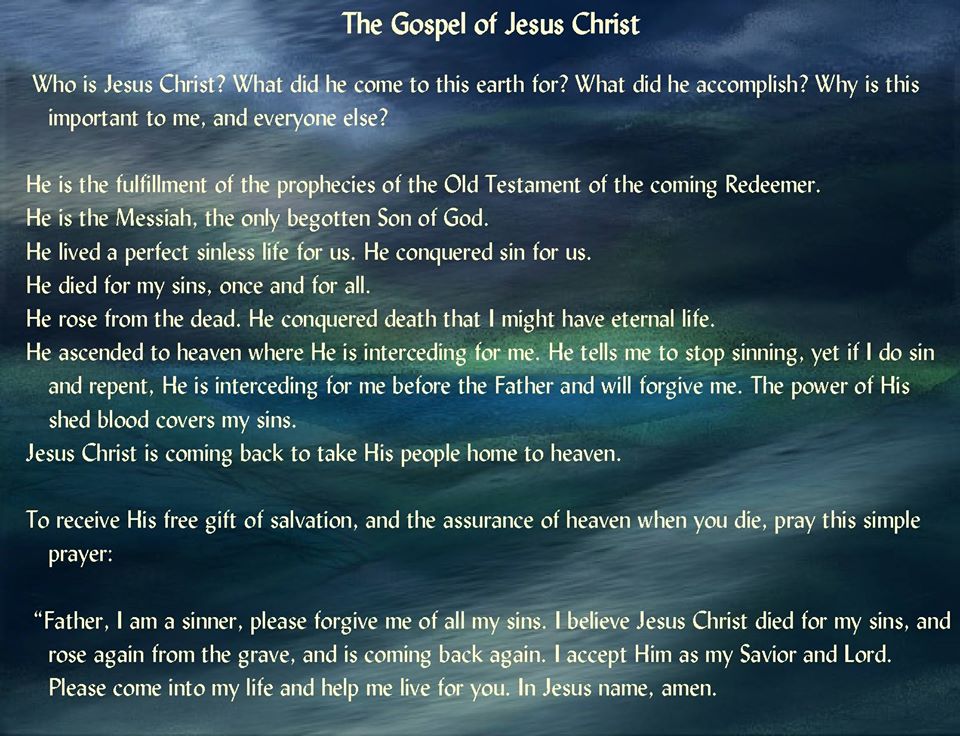|
Nevertheless among the chief rulers also many believed on him; but because of the Pharisees they did not confess him, lest they should be put out of the synagogue: For they loved the praise of men more than the praise of God. John 12:42-43 These verses ring true just as much today, as in the days Jesus was here. The same patterns of living among societies remains the same. The majority of people like being around those who will affirm them, praise them, and help them make up their minds. Many today, seem to have great difficulty being able to make decisions using rational reasoning skills. It is a learned trait. The problem with asking other's for their opinion is, if there's ten people in the room, your very likely to get ten different answers. People described in the verses above all have these traits: 1. The fear of man. They wonder "what will the world say if I do this". Fear paralyses the mind from being able to make a sound, rational decision-they're frozen because of worrying what other people will think or do. 2. Without grounded, solid conviction in any matter, people will not stand alone and be willing to keep making that stand without other's approval. This was a great test for all the believer's in the Bible. Their faith was repeatedly tested by those around them, who opposed and persecuted them. They were faced with making their stands alone, even to the death. 3. These rulers, even though some of them believed Jesus was the Son of God, couldn't bear the ridicule, and probable loss of their positions if they openly confessed Jesus before the Pharisee's over them. They didn't want to lose their status. This is prevalent everywhere today, and in churches. 4. These people need to have a crowd around them that approve them, and give them the adulations they crave. God's truth is not what's important to them; it's popularity, and praise. 5. They need to be admired, and respected by people. Today this is one of the top issues of the day-the need to be seen and heard, and presented to the public as someone who's gained a status among the elites. Again, this has been from the beginning of ages-pride and pomp. But, it is a shallow empty show. People omit, and cover what they don't want you to see or pay attention to, and emphasis what they want to sell you. Seeing someone who is simply honest, real, and no pretense-is extremely rare today. 6. These type of people may acknowledge Jesus is the Messiah, but with nothing that leads to any self-denial, or solid commitment to Christ. If challenged or asked of their faith, they will not boldly speak of their faith in Jesus, nor present the gospel with boldness. The need for the praise and acceptance of man, will win out. 7. They are not willing to face rejection and disgrace-if they would openly confess Jesus as Messiah. These rulers and leaders were the intellectual giants of their day, serving in the capacities of servants of God. They had learned how to use the Law, to achieve many of their hypocritical rules and standards, and gain their status in Israel. They weren't about to lose it, by making a profession of faith in Jesus, it would cost them too much. Jesus described them well in these corresponding verses: Mat 23:5 But all their works they do for to be seen of men: they make broad their phylacteries, and enlarge the borders of their garments, Mat 23:6 And love the uppermost rooms at feasts, and the chief seats in the synagogues, Mat 23:7 And greetings in the markets, and to be called of men, Rabbi, Rabbi. Mat 23:8 But be not ye called Rabbi: for one is your Master, even Christ; and all ye are brethren. Mat 23:9 And call no man your father upon the earth: for one is your Father, which is in heaven. Mat 23:10 Neither be ye called masters: for one is your Master, even Christ. Two of them, however, did afterward openly stand for Christ. These were Joseph and Nicodemus, Joh_19:38-39. That Joseph was one of them appears from Mar_15:43; Luk_23:50-51. For those who do make the stand for Christ, and are willing to bear whatever comes, the Lord's given us precious promises, and that He would be with us, in whatever we face in this life. Paul, the disciples, and many servants down through the ages have come to know the certainty of both the trials, but also the steadfast love, and presence of the Savior, in every situation. Heb 13:5 Let your conversation be without covetousness; and be content with such things as ye have: for he hath said, I will never leave thee, nor forsake thee. Heb 13:6 So that we may boldly say, The Lord is my helper, and I will not fear what man shall do unto me. Let's journey on, and keep our focus on the goal, heaven's gaits, and the Eternal abiding Presence of Christ-the King of Kings. Lorna Couillard SANCTIFY DAILY LIFE We may not like all the brethren, but there is something in each of them that Christ loves. Let us try to discover it, or love them for His sake. We can love people with our mind and think for them, or with our strength and serve them, even though the heart is somewhat reluctant.
Strangers and captives must never be forgotten, either in our prayers or our ministry. The love within the marriage tie must be unsullied, and we must watch against the insidious lust of gold. Why should we always be thinking of money, when God has promised, with two negatives, never to fail us, Heb_13:5? Thrice we are asked to remember those who bear office and rule in the church, Heb_13:7; Heb_13:17; Heb_13:24. We are called to a holy crusade. It is not for us to linger in circumstances of ease and self-indulgence when our Master suffered without the gate! Let us go forth unto Him, bearing His reproach! Has not the Church tarried in the city long enough, enervated by its fashions and flatteries? F.B. Meyer And we know that all things work together for good to them that love God, to them who are the called according to his purpose. For whom he did foreknow, he also did predestinate to be conformed to the image of his Son, that he might be the firstborn among many brethren. Romans 8:28-29 OUR DESTINY is the highest possible hope—"We shall be like Him." For this we were created, redeemed, and sanctified, that we should be conformed to the image of God's Son, that He might be the First Born among many brethren. "'Every man that hath this hope in him purifieth himself, even as He is pure." — 1Jn_3:3. To see Christ face to face, to be with Him in unbroken fellowship, and to be like Him—this is the threefold destiny of every Christian soul. But how little can we imagine our future life! We strive to penetrate the dense veil of mist in vain—what the resurrection body will be like; what the converse with holy beings will amount to; what ministry may be assigned to us—we know not what we shall be, but "we know that we shall be like Him" 1Jn 3:2—and it is enough! All that we have ever dreamed and hoped for will find its flower and fruitage in that glad summer time. In regards to these verses, a comment from John Wesley: "Whom he foreknew, he also predestinated conformable to the image of his Son - Here the apostle declares who those are whom he foreknew and predestinated to glory; namely, those who are conformable to the image of his Son. This is the mark of those who are foreknown and will be glorified, 2Ti 2:19. Phi 3:10, Phi 3:21. All God predestinated He foreknew. He saw them as believers, and as such predestinated them to salvation according to the eternal decree. “He that believeth shall be saved.” Conclusion: God sees and knows from everlasting to everlasting through one eternal now. Yet in condescension to our weakness He speaks after the manner of men of His purpose, counsel, plan, foreknowledge." (John Wesley, M.A.) HOPING FOR THE COMPLETED REDEMPTION Creation groans for freedom from the serpent’s trail. Like a captive maiden she sighs to be delivered from the curse which sin has brought upon her. The saints groan for the resurrection of the body and their full admission into the complete enjoyment of redemption. The Spirit also groans for the speedy accomplishment of God’s purposes-the salvation of the lost, the unity of the Church, and the advent of the Father’s kingdom. His yearnings express themselves through the prayers of the saints.
Sorrowful soul, take comfort from Rom_8:28! All things are working; there is no stagnation. They are working together, like the cogs of two wheels revolving in different directions. They are all working for good. The only condition is love on our part. Those who love God are loved by God, and all winds blow from the quarter of God’s love. And that love is a sure sign and token that they have been called; and if called, they may be sure that they are on the moving stairway which is bearing them up and on through successive stages to glory. F.B. Meyer For if ye forgive men their trespasses, your heavenly Father will also forgive you: But if ye forgive not men their trespasses, neither will your Father forgive your trespasses. Mat. 6:14-15 Lessons in Forgiveness-From Corrie ten Boom “Forgiveness is the key that unlocks the door of resentment and the handcuffs of hatred. It is a power that breaks the chains of bitterness and the shackles of selfishness.” “It was at a church service in Munich that I saw him, a former S.S. man who had stood guard at the shower room door in the processing center at Ravensbruck. He was the first of our actual jailers that I had seen since that time. And suddenly it was all there – the roomful of mocking men, the heaps of clothing, Betsie's pain-blanched face. He came up to me as the church was emptying, beaming and bowing. “How grateful I am for your message, Fraulein.” He said. “To think that, as you say, He has washed my sins away!” His hand was thrust out to shake mine. And I, who had preached so often to the people in Bloemendaal the need to forgive, kept my hand at my side. Even as the angry, vengeful thoughts boiled through me, I saw the sin of them. Jesus Christ had died for this man; was I going to ask for more? Lord Jesus, I prayed, forgive me and help me to forgive him. I tried to smile, I struggled to raise my hand. I could not. I felt nothing, not the slightest spark of warmth or charity. And so again I breathed a silent prayer. Jesus, I prayed, I cannot forgive him. Give me Your forgiveness. As I took his hand the most incredible thing happened. From my shoulder along my arm and through my hand a current seemed to pass from me to him, while into my heart sprang a love for this stranger that almost overwhelmed me. And so I discovered that it is not on our forgiveness any more than on our goodness that the world's healing hinges, but on His. When He tells us to love our enemies, He gives, along with the command, the love itself.” “God dealt with our whole situation on the cross; there is nothing left for you to settle. Just say to Him, "Lord, I cannot forgive and I will no longer try to do it; but I trust that You in me will do it. I can't forgive and love; but I trust that You will forgive and love in my place and that You will do these things in me.” Note: These quotes are copied by me, from my own books by Corrie ten Boom. This material is offered freely under terms of Fair Use, according to the United States Fair Use Act of 1976, subsection 107, for educational purposes. This website is not monetized and no money is made from this material. Jesus on Conditions for Forgiveness Take heed to yourselves: If thy brother trespass against thee, rebuke him; and if he repent, forgive him. Luke 17:3 The verse above has a complete reference to how to go about attempting a restoration of fellowship, when someone is offended, or has been wronged. If the person who has trespassed is confronted, and he admits his offense-forgiveness follows.
We are to go to them first privately, and proceed according to the rules directed in this verse, as well in Mat. ch. 18; lay his sin before him; endeavor not only to convince him of the fact, but of the evil of it; how contrary it is to the will of God; how unbecoming the Gospel of Christ, how hurtful to himself, as well as injurious to others; and how such evils give the devil an open door for dangerous activity. See notes on Mat_18:15-22. To observe that kind rebuke, as well as forgiveness, is a duty. But, what if the person will not hear you? Then, we are to disassociate ourselves from them completely, and have no more to do with them. We can forgive them in our hearts-but we don't have to allow them any access to our lives any further. Mat 18:15 Moreover if thy brother shall trespass against thee, go and tell him his fault between thee and him alone: if he shall hear thee, thou hast gained thy brother. Mat 18:16 But if he will not hear thee, then take with thee one or two more, that in the mouth of two or three witnesses every word may be established. Mat 18:17 And if he shall neglect to hear them, tell it unto the church: but if he neglect to hear the church, let him be unto thee as an heathen man and a publican. Eph 5:11 And have no fellowship with the unfruitful works of darkness, but rather reprove them. It's by taking these measures that we maintain a right relationship with the Lord, and fulfill His mandates for us in His word, and follow in His steps on our journey through this life. All his ways, are the way of peace. 1Pe 3:10 For he that will love life, and see good days, let him refrain his tongue from evil, and his lips that they speak no guile: 1Pe 3:11 Let him eschew evil, and do good; let him seek peace, and ensue it. 1Pe 3:12 For the eyes of the Lord are over the righteous, and his ears are open unto their prayers: but the face of the Lord is against them that do evil. Lorna Couillard Of Whom I Am Chief Paul summarizes his personal experience of the gospel. This is a faithful saying, and worthy of all acceptation, that Christ Jesus came into the world to save sinners; of whom I am chief. 1Ti 1:15 This is a faithful saying and worthy of all acceptance: This unusual phrase introduces a statement of special importance. Paul used this phrase 5 times - all in the Pastoral Epistles. Christ Jesus came into the world to save sinners: Jesus came to save sinners, not those living under the illusion of their own righteousness. It is the sick who need a physician (Mar_2:17). Since Jesus came into the world to save sinners, this is the first necessary qualification for being a child of God - being a sinner. Sinners are not disqualified from coming to God, because Jesus came to save them. And, no matter how great the sin you may have been in, there is no sin Jesus won't forgive, except the one you refuse to confess, and repent of. Jesus' blood will cleanse even the worst of sinners, but, you must come as you are, and be willing to surrender it to Jesus, and repent. We also see the great danger in taking the terms sin and sinner out of our vocabulary. Many preachers deliberately do this today, because they don’t want to offend anyone from the pulpit. But if Jesus came to save sinners, shouldn’t we identify who those sinners are? How else will they come to salvation? “Even those who recognize that Christ’s work is to save admit that it is more difficult to believe that this salvation belongs to sinners. Our mind is always prone to dwell on our own worthiness and, as soon as our unworthiness becomes apparent, our confidence fails. Thus the more a man feels the burden of his sins, he ought with greater courage to betake himself to Christ, relying on what is here taught, that He came to bring salvation not to the righteous but to sinners.” (Calvin) Paul’s claim to be the chief of sinners was not an expression of some super-pious false humility. He genuinely felt his sins made him more accountable before God than others. Aren’t we all equally sinners? No; “All men are truly sinners, but all men are not equally sinners. They are all in the mire; but they have not all sunk to an equal depth in it.” (Spurgeon) Paul felt - rightly so - his sins were worse because he was responsible for the death, imprisonment, and suffering of Christians, whom he persecuted before his life was changed by Jesus (Act_8:3; Act_9:1-2, 1Co_15:9, Gal_1:13, Php_3:6). In Act_26:11, Paul explained to Agrippa what might have been his worst sin: And I punished them often in every synagogue and compelled them to blaspheme; and being exceedingly enraged against them, I persecuted them even to foreign cities. He compelled others to blaspheme Jesus. “This, indeed, was a very horrible part of Saul’s sinfulness. To destroy their bodies was bad enough, but to destroy their souls too-to compel them to blaspheme, to speak evil of that name which they confessed to be their joy and their hope, surely that was the worst form that even persecution could assume. He forced them under torture to abjure the Christ whom their hearts loved. As it were he was not content to kill them, but he must damn them too.” (Spurgeon) There are worse kinds of sin; sins that harm God’s people are especially bad in God’s eyes. We must soberly consider if we are guilty, now or in the past, of harming God’s people. “[God] remembers jests and scoffs leveled at his little ones, and he bids those who indulge in them to take heed. You had better offend a king than one of the Lord’s little ones.” (Spurgeon) “Despair’s head is cut off and stuck on a pole by the salvation of ‘the chief of sinners.’ No man can now say that he is too great a sinner to be saved, because the chief of sinners was saved eighteen hundred years ago. If the ringleader, the chief of the gang, has been washed in the precious blood, and is now in heaven, why not I? Why not you?” (Spurgeon) I will add my amen. The scriptural account of Paul's testimony before Agrippa is, in my estimation-the greatest testament of the power of God is by giving his own testimony of what he was before his conversion, and what the transforming power of God that changed his life. What God did for Paul, he can do for anyone. I can testify the truth of this, in my own life. Lorna Couillard Paul's Defense Before Agrippa Act 26:1 Then Agrippa said unto Paul, Thou art permitted to speak for thyself. Then Paul stretched forth the hand, and answered for himself:
Act 26:2 I think myself happy, king Agrippa, because I shall answer for myself this day before thee touching all the things whereof I am accused of the Jews: Act 26:3 Especially because I know thee to be expert in all customs and questions which are among the Jews: wherefore I beseech thee to hear me patiently. Act 26:4 My manner of life from my youth, which was at the first among mine own nation at Jerusalem, know all the Jews; Act 26:5 Which knew me from the beginning, if they would testify, that after the most straitest sect of our religion I lived a Pharisee. Act 26:6 And now I stand and am judged for the hope of the promise made of God unto our fathers: Act 26:7 Unto which promise our twelve tribes, instantly serving God day and night, hope to come. For which hope's sake, king Agrippa, I am accused of the Jews. Act 26:8 Why should it be thought a thing incredible with you, that God should raise the dead? Act 26:9 I verily thought with myself, that I ought to do many things contrary to the name of Jesus of Nazareth. Act 26:10 Which thing I also did in Jerusalem: and many of the saints did I shut up in prison, having received authority from the chief priests; and when they were put to death, I gave my voice against them. Act 26:11 And I punished them oft in every synagogue, and compelled them to blaspheme; and being exceedingly mad against them, I persecuted them even unto strange cities. Act 26:12 Whereupon as I went to Damascus with authority and commission from the chief priests, Act 26:13 At midday, O king, I saw in the way a light from heaven, above the brightness of the sun, shining round about me and them which journeyed with me. Act 26:14 And when we were all fallen to the earth, I heard a voice speaking unto me, and saying in the Hebrew tongue, Saul, Saul, why persecutest thou me? it is hard for thee to kick against the pricks. Act 26:15 And I said, Who art thou, Lord? And he said, I am Jesus whom thou persecutest. Act 26:16 But rise, and stand upon thy feet: for I have appeared unto thee for this purpose, to make thee a minister and a witness both of these things which thou hast seen, and of those things in the which I will appear unto thee; Act 26:17 Delivering thee from the people, and from the Gentiles, unto whom now I send thee, Act 26:18 To open their eyes, and to turn them from darkness to light, and from the power of Satan unto God, that they may receive forgiveness of sins, and inheritance among them which are sanctified by faith that is in me. Act 26:19 Whereupon, O king Agrippa, I was not disobedient unto the heavenly vision: Act 26:20 But shewed first unto them of Damascus, and at Jerusalem, and throughout all the coasts of Judaea, and then to the Gentiles, that they should repent and turn to God, and do works meet for repentance. Act 26:21 For these causes the Jews caught me in the temple, and went about to kill me. Act 26:22 Having therefore obtained help of God, I continue unto this day, witnessing both to small and great, saying none other things than those which the prophets and Moses did say should come: Act 26:23 That Christ should suffer, and that he should be the first that should rise from the dead, and should shew light unto the people, and to the Gentiles. Act 26:24 And as he thus spake for himself, Festus said with a loud voice, Paul, thou art beside thyself; much learning doth make thee mad. Act 26:25 But he said, I am not mad, most noble Festus; but speak forth the words of truth and soberness. Act 26:26 For the king knoweth of these things, before whom also I speak freely: for I am persuaded that none of these things are hidden from him; for this thing was not done in a corner. Act 26:27 King Agrippa, believest thou the prophets? I know that thou believest. Act 26:28 Then Agrippa said unto Paul, Almost thou persuadest me to be a Christian. Act 26:29 And Paul said, I would to God, that not only thou, but also all that hear me this day, were both almost, and altogether such as I am, except these bonds. "Watch, and remember, I ceased not to warn every one night and day with tears." Acts 20:31 The ministry of warning should be a recognized part of the work of the Church and of each individual member. The foghorn warns the ship from the deadly rocks; the red light warns the train of imminent danger; in the days of the plague people were warned from infected areas: how much more should we, who know the wrath of God which abides on those who refuse Christ, raise our voice in warning. We should do it deliberately, earnestly, patiently, and in reliance upon the Spirit of God to make our words, however much they may be resented, the means of arresting the wicked from the error of his ways, and those who are taking their first steps in forbidden paths from pursuing them (Eze_33:7-9). Eze 33:7 So thou, O son of man, I have set thee a watchman unto the house of Israel; therefore thou shalt hear the word at my mouth, and warn them from me. Eze 33:8 When I say unto the wicked, O wicked man, thou shalt surely die; if thou dost not speak to warn the wicked from his way, that wicked man shall die in his iniquity; but his blood will I require at thine hand. Eze 33:9 Nevertheless, if thou warn the wicked of his way to turn from it; if he do not turn from his way, he shall die in his iniquity; but thou hast delivered thy soul. How wonderful it is that God does not commission angels to carry His warnings and appeals; instead of this, the work that angels might love to do is entrusted to men. It is at our peril that we neglect our opportunities in this direction. If the signalman is placed at a point where many lines of rail cross or diverge, and he sleeps at his post, or neglects his duty, he may be tried for manslaughter; and if we know of people in the immediate circle of our influence who are in danger of ruining their physical, moral, and spiritual well-being, we are bound to raise a warning voice. If we saw, upon the upper reaches of a river, a boat full of people hastening towards the rapids unheeding the danger, surely we might be guilty of being an accessory in their destruction, if we failed to do something to warn them of their peril. Accompanying our words of warning, there should be the clear reiteration of the Love of God. He does not desire the death of a sinner, but rather that he should turn from his wickedness and live. It is not enough to try and prevent men from taking the wrong path, we must urge and allure them to take the pleasant ways of righteousness and peace. All are included in the love of God. Even sin cannot turn away His love, which is like that described in the parable of the Prodigal Son. Source: Our Daily Walk “WHY WILL YE DIE?” The prophet depicts the peasantry of a fertile valley as engaged in pastoral pursuits. It is a peaceful, happy scene; but, creeping through the mountain passes, are their deadliest foes. How necessary that there should be a watchman, trumpet in hand, to give notice; and how unspeakable his guilt if he forbear to sound a warning! We are not responsible for those who refuse to take warning from our announcements, faithfully given; but if we perceive a soul in mortal danger and forbear to warn it, we are not only responsible for its ruin, but we bring awful retribution upon ourselves. Well might Richard Baxter lie awake at night beneath his awful sense of responsibility for the souls of men. God desires our salvation. If only the sinner will confess his sins to the faithful and merciful High Priest, and make such restitution as he can, not one of his sins shall be remembered against him. F.B. Meyer
|
Welcome
In this page there will be devotions/poems music and inspirational material 
The Lord Will Pour Out His Spirit
And it shall come to pass afterward, that I will pour out my spirit upon all flesh; and your sons and your daughters shall prophesy, your old men shall dream dreams, your young men shall see visions:
And also upon the servants and upon the handmaids in those days will I pour out my spirit. And I will shew wonders in the heavens and in the earth, blood, and fire, and pillars of smoke. The sun shall be turned into darkness, and the moon into blood, before the great and the terrible day of the LORD come. And it shall come to pass, that whosoever shall call on the name of the LORD shall be delivered: for in mount Zion and in Jerusalem shall be deliverance, as the LORD hath said, and in the remnant whom the LORD shall call. Joel 2:28-32 But this is that which was spoken by the
prophet Joel; And it shall come to pass in the last days, saith God, I will pour out of my Spirit upon all flesh: and your sons and your daughters shall prophesy, and your young men shall see visions, and your old men shall dream dreams: And on my servants and on my handmaidens I will pour out in those days of my Spirit; and they shall prophesy: Act 2:16-18 Resources
Madame Guyon - A Short and Easy Method of Prayer / Christian Audio Book (1 / 2) https://youtu.be/eihZWpAk7y4?si=PQ-_J3Y6i8u-N2Ac Union With God By Jeanne Guyon Chapter 1 Of 7 https://youtu.be/d5AfKS2dFLg?si=VtWAeEurkAddTDpL The Practice of the Presence of God - audiobook Brother LAWRENCE (1614 - 1691)- https://youtu.be/rRAs_BK1NR8?si=hGAL4C829aH7 DKMn Gander Story Poems
https://www.gander poems.org/ Archives
July 2024
|
Proudly powered by Weebly











